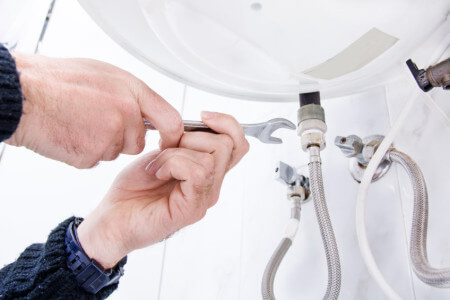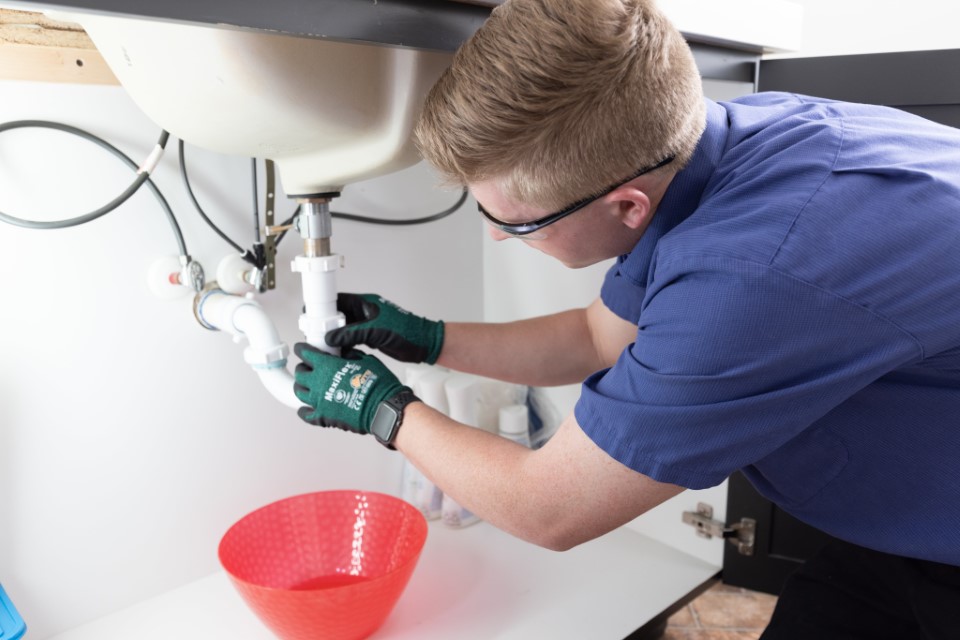Immediate Tips for Critical Situations Until A Plumber Arrives
Immediate Tips for Critical Situations Until A Plumber Arrives
Blog Article
How do you feel in regards to Plumbing Emergencies: Tips on What To Do Before?

Plumbing emergencies can strike at any time, causing stress and possible damages to your home. Whether it's a ruptured pipe, a clogged drain, or a dripping tap, understanding how to manage the scenario up until an expert plumbing arrives can conserve you from additional problems. This post gives vital emergency plumbing pointers to assist you reduce damages and restore control throughout a plumbing situation.
Switch off the Supply Of Water
The first step in any type of plumbing emergency situation is to turn off the water supply. For local problems, such as a leaking tap or toilet, switch off the valve near the fixture. In the case of a significant leak or ruptured pipe, situate your home's primary water shut-off valve and transform it off instantly. Recognizing the location of these shutoffs beforehand can save valuable time during an emergency situation.
Shut Off Your Hot Water Heater
In particular emergencies, such as a ruptured pipeline, it's wise to turn off your hot water heater. This protects against overheating or damage to the system when water quits flowing. Shut off the power supply to the hot water heater (electric or gas) and let it cool off to stay clear of potential dangers.
Momentarily Quit a Burst Pipe
A burst pipeline can bring about significant water damage in minutes. To minimize the issue:
Call a professional plumbing technician immediately to deal with the trouble completely.
Have an Emergency Plumbing Set
Prepare a standard plumbing emergency package to handle minor problems properly. Your kit ought to include:
Having these devices accessible can make a significant difference in your capability to handle emergency situations.
Unclog Drains Pipes Securely.
A clogged up drainpipe can be a frustrating and messy concern. Right here's exactly how to tackle it:.
If these methods do not work, avoid using too much pressure, as it may worsen the clog.
Manage Overflowing Toilets.
An overflowing commode can trigger immediate chaos. Below's what you should do:.
Address Small Leakages with Short-term Solutions.
Little leakages can quickly end up being substantial troubles if left uncontrolled. Use these short-lived repairs till professional aid arrives:.
While these repairs aren't permanent, they can aid reduce water loss and damages.
Handle Frozen Pipeline Meticulously.
In colder environments, icy pipelines are a common emergency situation. If you think an icy pipeline:.
Know When to Call an Expert.
While quick fixes can aid temporarily, specific pipes issues need prompt professional attention. Call a plumbing professional if:.
Quickly calling a specialist ensures the concern is settled correctly and avoids additional difficulties.
Protect against More Damages.
Taking quick action to reduce damage can conserve you money and time in the future. Below's just how:.
Final thought.
Plumbing emergencies can be frustrating, yet with the appropriate understanding and tools, you can manage the scenario properly up until help gets here. By switching off the water system, addressing little leaks, and making use of momentary fixes, you can decrease damages and keep your home safe. Bear in mind, these pointers are short-term solutions; always get in touch with a licensed plumbing to handle the root cause of the trouble. Preparation and fast thinking are your best allies in any kind of pipes emergency situation.
Expert Tips for Emergency Plumbing Repairs
Plumbing emergencies can be incredibly stressful and inconvenient. Whether it’s a burst pipe, a clogged drain, or a leaky faucet, these common plumbing emergencies need immediate attention to prevent further damage to your home. But before you panic, it’s important to understand the basics of plumbing repairs and the steps you can take to address these emergencies. In this article, we will share some expert tips to help you navigate through these situations and minimize potential water damage.
Identifying Common Plumbing Emergencies
Leaky pipes and faucets Clogged drains and toilets Burst pipes Low water pressure Water heater problems Essential Tools for Plumbing Repairs
Plunger: Useful for unclogging toilets and drains Adjustable wrench: Needed for tightening or loosening nuts and bolts Pipe wrench: Ideal for gripping and turning pipes Tape measure: Necessary for accurate pipe measurements Plumber’s tape: Helps create watertight seals Understanding Emergency Plumbing Services
Emergency plumbing services are designed to provide immediate assistance for unexpected plumbing issues that can cause significant damage to your home, business, or health. These services are typically available 24/7 and are staffed by experienced plumbers who can quickly diagnose and repair a wide range of plumbing problems.
When a plumbing emergency strikes, time is of the essence. Whether it’s a burst pipe flooding your basement or a gas leak posing a serious risk, emergency plumbing services ensure that help is just a phone call away. These professionals are equipped with the tools and expertise to handle any situation, minimizing damage and restoring your plumbing system to proper working order.
What Constitutes a Plumbing Emergency?
Burst pipes or water supply lines: These can cause extensive water damage and need immediate repair to prevent flooding. Gas leaks or suspected gas leaks: Gas leaks are extremely dangerous and require prompt attention to avoid potential explosions or health hazards. Sewer backups or overflows: These can lead to unsanitary conditions and significant property damage. Clogged drains or toilets causing water to overflow: Overflowing water can damage floors, walls, and other structures. Leaks or water damage causing structural damage: Persistent leaks can weaken the structural integrity of your home or business. No hot water or heating: A lack of hot water can be more than an inconvenience, especially in colder months. Common Causes of Plumbing Emergencies
Aging or corroded pipes: Over time, pipes can deteriorate, leading to leaks or bursts. Improperly installed or maintained plumbing fixtures: Faulty installations or lack of maintenance can result in unexpected failures. Tree roots or other debris infiltrating your sewer line: Roots can grow into pipes, causing blockages and backups. Frozen pipes or water supply lines: In colder climates, pipes can freeze and burst, leading to significant water damage. High water pressure or sudden changes in water pressure: Excessive pressure can strain pipes and fixtures, causing them to fail. Natural disasters such as floods or earthquakes: These events can disrupt your plumbing system and cause severe damage. Steps to Minimize Water Damage
Locate the water shut-off valve: Knowing where the valve is can help you quickly cut off the water supply to the affected area. Turn off the water heater: If there’s a risk of water coming into contact with the heating element, make sure to turn off the water heater to avoid potential accidents. Open faucets and drain pipes: By opening faucets and drain pipes, you can relieve pressure and empty any standing water. Collect and contain water: Use towels, buckets, or bins to collect water and prevent it from spreading to other areas of your home. https://leecountyplumbingandwellservice.com/expert-tips-for-emergency-plumbing-repairs/

Do you appreciate reading about What to Do During a Plumbing Emergency? Create feedback directly below. We'd be happy to listen to your responses about this content. We are looking forward that you visit us again later on. Do you know someone else who is curious about Plumbing Emergencies: Tips on What To Do Before? Why not share it. Thanks a lot for your time. Revisit us soon.
Click Here Report this page